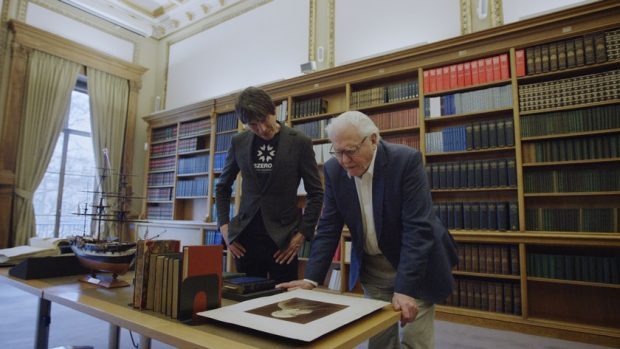Sir David Attenborough and Professor Brian Cox will unite on screen for the first time in a new show delving into the stories of history’s most significant scientists.
The acclaimed naturalist and the physicist will discuss the legacy of Charles Darwin, from his “absolutely mad obsession with collecting beetles” to extracts from his legendary 1859 scientific tome On The Origin Of Species.
Sir David explains his admiration for the famed explorer’s book that shares “argument and observation” rather than “jargon”.
As the six-part BBC iPlayer series People Of Science continues, Cox will meet Royal Society Fellows Bill Bryson, Dame Uta Frith, Sir David Spiegelhalter, Dame Julia Higgins and Dame Sally Davies as they explore the organisation’s archives and introduce viewers to their favourite historical figures in the field.

Cox, who is professor for public engagement in science at the Royal Society, said: “People Of Science opens up a treasure trove of archival riches and tales of scientists from the past.
“It’s been a fascinating experience to work with Fellows of the Royal Society to tell these stories. For me, and I hope for the audience, these films deliver a rare insight into the people behind some of the world’s greatest scientific discoveries.
“Some are household names, some less well known, but all have changed our lives. From Darwin’s singular obsession with beetles to Alice Lee’s use of statistics to refute the notion that men, with larger average skull size, are more intelligent than women, these stories illuminate the history of science in a novel and exciting way.”
Dame Uta takes on the legacy of Lee, an early mathematician who stormed into a conference of male anatomists in Dublin and took their head measurements to dispel the belief that men’s larger skulls made them more intelligent than women.

Meanwhile, Bryson explores the legacy of Benjamin Franklin, Dame Julia revisits Michael Faraday’s work with electricity, and chief medical officer Dame Sally investigates the impact of Alexander Fleming and Howard Florey’s discovery of penicillin.
The Royal Society’s head of library and centre for history Keith Moore said: “We love to look behind the steel doors of the Royal Society’s archives and what better way to do it than by having flesh-and-blood scientists tell the very human stories of their great predecessors.
“Eavesdropping on conversations between Brian Cox and a host of other leading scientists allows us all to discover the intimate and sometimes surprising connections between key researchers of the here-and-now and their scientific heritage. What could be more inspiring?”
The Royal Society’s People Of Science series will be available on BBC iPlayer from Thursday.
